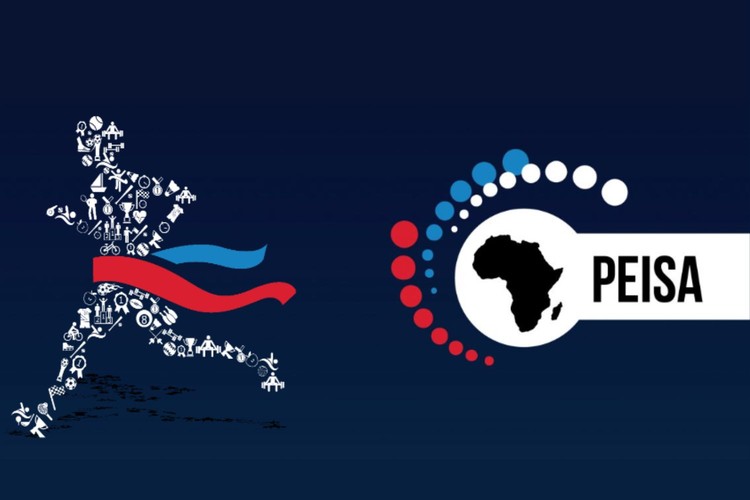Sports organisation hides how R17-million Lottery funding was used
SIU is probing grants paid to Physical Education Institute of South Africa
The Physical Education Institute of South Africa (PEISA) received millions in Lottery funding for sporting events but has refused to provide evidence of how the money was used. Image taken from PEISA’s website, fair use.
- The Physical Education Institute of South Africa received R17.6-million in Lottery funds between 2019 and 2021 to organise sporting events.
- The National Lotteries Commission (NLC) provided only a vague breakdown of the grants with no details of the sporting events or teams that the organisation was supposed to organise.
- GroundUp could find no evidence that the events were held.
- The director of the organisation, Norman Mphake, declined to answer our questions. Mphake is also a director of the FootGolf South Africa Association, which received R2.6-million from the NLC this year.
A “physical education” non-profit company received R17.6-million from the National Lotteries Commission (NLC) to organise sporting events, but has refused to provide details on how the money was used.
GroundUp has reliably learnt that the grants paid to the Physical Education Institute of South Africa (PEISA) are under investigation by the Special Investigations Unit.
A breakdown of the grants provided by the NLC gives only vague budget categories. In 2020, PEISA was allocated R12.5-million for “women and youth empowerment in high performance sport” budgeted as follows:
- R2.8-million for travel and accommodation for a “domestic competition”;
- R2-million for accommodation and meals for an “international competition”;
- R5.7-million for “transformation and development”;
- R1.5-million for organising “local competitions and leagues”; and
- R500k for “administration fees”
The NLC did not say which sports were funded or what competitions were organised with this money. It is also not clear how the budget amounts were calculated.
In 2021, PEISA received another R5.1-million to select teams to participate in the International School Sport Federation Championship:
- R1-million for domestic travel, accommodation and meals;
- R2.5-million for “transformation and development”;
- R1.5-million for “organising local competitions and leagues”; and
- R100k for “administration”.
It’s unclear which South African teams participated in the 2021 or 2022 International School Sport Federation Championship. There is also no mention of the event on PEISA’s social media pages.
The NLC said that PEISA’s work was completed “at a satisfactory level”.
No comment from PEISA
GroundUp contacted one of PEISA’s three directors, Norman Mphake, on WhatsApp. Mphake first offered to meet with us to provide documents, but days later retracted his offer: “I have been advised not to overindulge you as I may find myself running around trying to explain to my partners and stakeholders: ‘that’s not what I meant’, and you would have your headline.”
Mphake did not respond to a follow-up question asking for PEISA’s annual reports.
He did, however, send us a copy of his work profile, to share the “nature and scope” of his work, but the document did not answer any of our questions.
According to his work profile, Mphake is involved in several non-profit sports organisations; is a former member of the SA Olympic Committee’s coaches commission; and a member of UNESCO’s national commission.
PEISA’s website gives no indication that it has received funding from the NLC, which is usually a requirement for NLC grantees.
The website is vague, describing PEISA as a “multinational Physical Education and Sports consultancy”, which “specialises in connecting institutional clients with leading experts, who deliver context and country specific turn-key solutions”.
There is also mention of a membership scheme linked to a higher education facility in Cuba.
Mphake is also a director of non-profit company FootGolf South Africa Association and the sole director of a for-profit company, FootGolf SA.
In July 2024, the non-profit company received R2.6-million from the NLC.
The official registered address for both FootGolf SA and PEISA is a house in Roodepoort, which belongs to Mphake.
Mphake told GroundUp that Footgolf SA was not linked to PEISA, but since mid-2022, PEISA’s X (Twitter) account has almost exclusively reposted content from the FootGolf SA account. Only one post in 2024 was directly published by the PEISA account.
PEISA has an Instagram account, but it has only posted once in the last two years.
FootGolf SA is the “national administrative governing body that controls the sport of FootGolf in South Africa”, according to the official FootGolf SA website.
The NLC said it was aware that Mphake was a director of both PEISA and FootGolf SA. PEISA also collaborated with the Department of Basic Education on two physical education symposiums, one in 2015 and another in 2019.
PEISA also presented a TV show with the education department called #Active4Life, which was broadcast on the department’s streaming platform.
Education department spokesperson Terence Khala told GroundUp that there was a Memorandum of Understanding with PEISA, but the organisation did not receive any funding from the department.
Support independent journalism
Donate using Payfast

Don't miss out on the latest news
We respect your privacy, and promise we won't spam you.
© 2024 GroundUp. This article is licensed under a Creative Commons Attribution-NoDerivatives 4.0 International License.
You may republish this article, so long as you credit the authors and GroundUp, and do not change the text. Please include a link back to the original article.
We put an invisible pixel in the article so that we can count traffic to republishers. All analytics tools are solely on our servers. We do not give our logs to any third party. Logs are deleted after two weeks. We do not use any IP address identifying information except to count regional traffic. We are solely interested in counting hits, not tracking users. If you republish, please do not delete the invisible pixel.

